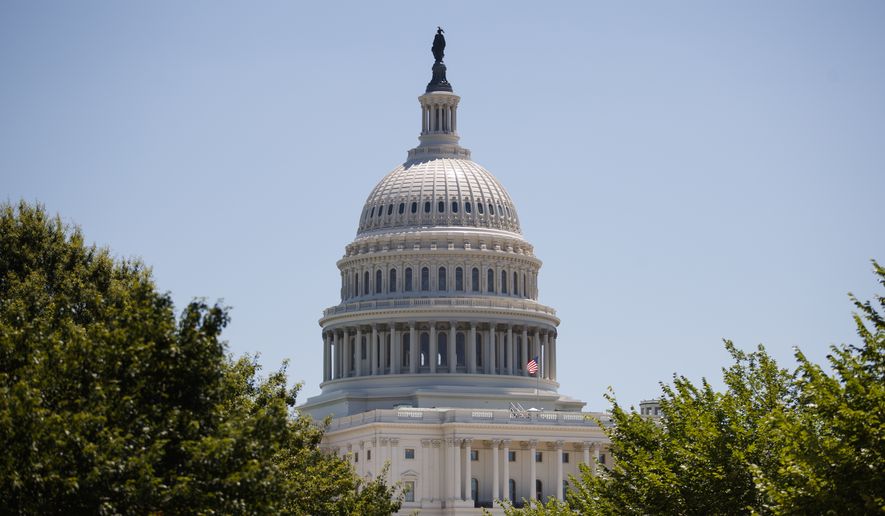
Want a greener recovery? Here are three ways to do it
by NIcolas Loris and Drew BondANALYSIS/OPINION:
As policymakers search for ways to jumpstart an economic recovery, several members of Congress are renewing a push for a massive green stimulus package.
Government spending on specific energy projects may benefit a handful of companies, but it is no recipe for sustained economic viability. Instead, policymakers should implement broad-based, technology neutral reforms that unleash the ingenuity of the American people.
By breaking down barriers that stymie energy innovation, energy consumers — and the economy broadly — would benefit. Here are three policy fixes Congress and the administration should prioritize.
One priority should be for Congress and the administration to fix the environmental review and permitting process required by the National Environmental Policy Act, or NEPA. This half-a-century-old law simply has not kept up with the pace of energy innovation. As a result, cleaner and more energy efficient projects are subjected to years of costly delays, when instead they should be expedited.
If a project isn’t held up in the courts by anti-development activists, then it’s buried by increasing amounts of arbitrary red tape. This holds true whether the project is a pipeline or a solar farm. In fact, some of the most ardent NEPA critics are renewable energy developers.
During the pandemic, federal and state agencies have suspended many counterproductive regulations. Throughout multiple sectors of the economy, policymakers have sensibly waived regulations that interfered with public health protections and provide economic relief during the COVID-19 pandemic. Whether it’s increasing access to telehealth and online education or removing restrictions on distilleries to make sanitizer, consumers have benefitted from more flexibility.
Similarly, agencies have waived the environmental reviews through categorical exclusions. As Heritage Foundation Senior Research Fellow Diane Katz points out, “Even the Obama Administration granted waivers to more than 95 percent of the 192,707 projects funded by the American Recovery and Reinvestment Act of 2009. Any regulation for which 90 percent or more of compliance is waived is a pointless regulation.”
Most of the NEPA could go away tomorrow, and we’d still have a laundry list of federal and state regulations that protect the environment. Thankfully, the Trump administration has put forth a set of productive reforms that will streamline and improve the NEPA process, ensuring that Americans can get to work.
Another priority should be tax reform in the form of immediate and full expensing for all new plant and equipment costs. This would encourage investment in new, more efficient technologies instead of the burdensome system of depreciation that needlessly raises the cost of capital for these types of endeavors. Congress should apply full expensing, whether a company is building a wind turbine or extracting natural gas.
The Tax Cuts and Jobs Act allows for full expensing for short-lived capital investments, which includes those with useful lives of 20 or fewer years, until the end of 2022. Policymakers should expand this to all investments, including research and development, and remove the expiration date. Doing so would encourage business owners to quickly replace older, less environmentally friendly equipment with upgrades.
A third priority should be to open access to domestic and international markets by reducing trade barriers. Section 201 solar tariffs drive up the price of solar projects, and steel and aluminum tariffs increase construction costs for a wide range of energy resources.
Furthermore, the mere threat of tariffs and companies waiting on exemption requests creates a great deal of uncertainty, resulting in precious investment dollars sitting on the sideline. Rather than protecting a narrow set of companies through tariffs and trade restrictions, opening market access will expand the customer base for American energy producers who have a stronger environmental performance record than many of their international counterparts.
With the exception of technology and resource-specific tariffs, none of these reforms is specific to the energy sector. Rather than picking winners and losers, they are purposefully broad-based, technology-neutral improvements that will generate new investment and create jobs across many sectors of the economy, including energy.
Most importantly, these reforms will empower the private sector to provide households and businesses with affordable, dependable power while yielding better environmental outcomes.
• Nicolas Loris is The Heritage Foundation’s Morgan Fellow in Energy and Environmental Policy and deputy director of its Roe Institute for Economic Policy Studies. Drew Bond is the co-founder of C3 Solutions.